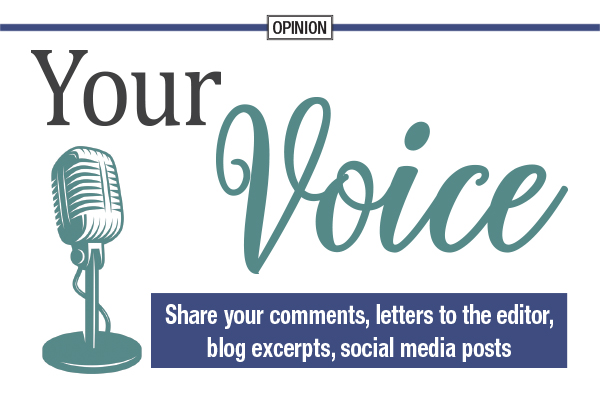Incorporating the leadership of survivors and programs to address societal inequities are two essentials in the fight against human trafficking, the U.S. State Department said in its 2022 Trafficking in Persons Report.
Russia’s war on Ukraine has greatly increased the number of people vulnerable to traffickers’ snares, the U.S. said in releasing the report July 19. The 634-page report highlights global human trafficking in forced sex and labor, including government-sponsored trafficking, in nearly 200 countries ranked by their progress in fighting the crime.
The United States is one of 30 Tier 1 countries, signaling conformance to minimum anti-trafficking standards under the Trafficking Victim Protection Act of 2000 (TVPA). Tier rankings do not indicate the extent of human trafficking in any particular country named, but ranks the level of engagement of TVPA standards, the report stipulates.
The report signals that the U.S. must do more to fight human trafficking at home and abroad, the Southern Baptist Ethics & Religious Liberty Commission said.
“Human trafficking – modern day slavery – is a horrific reality of our time,” Hannah Daniel, policy manager of the ERLC’s Washington office, said. “This report exposes the ways that the Chinese Communist Party is using forced labor in its Uyghur internment camps and rightly urges the United States to prioritize these concerns, particularly as it engages with China on climate change. The report also demonstrates the significant danger and trauma that many around the world face when they are displaced from their homes.
‘Unprecedented displacement’
“As we face an unprecedented scale of displacement around the world, the United States must do more to combat human trafficking and address the root causes that create such vulnerabilities where it can thrive.”
Joining the U.S. in the Tier 1 ranking of countries doing the most to fight human trafficking are Argentina, Australia, Austria, the Bahamas, Bahrain, Belgium, Canada, Chile, Colombia, Cyprus, the Czech Republic, Estonia, Finland, France, Georgia, Germany, Guyana, Iceland and Lithuania.
Countries ranked in Tier 3, those furthest from meeting minimum TVPA standards, are Afghanistan, Belarus, Brunei, Burma, Cambodia, China, Cuba, Curacao, Eritrea, Guinea-Bissau, Iran, Korea, Macau, Malaysia, Nicaragua, Russia, Sint Maarten, South Sudan, Syria, Turkmenistan, Venezuela and Vietnam.
Nearly 100 countries are ranked Tier 2, and another 34 are on the Tier 2 Watch List of countries making significant efforts to meet compliance standards.
The 2022 report comes in the midst of a humanitarian crisis, U.S. Secretary of State Antony Blinken wrote in the report’s introduction.
“Russia’s senseless continued invasion of Ukraine and its devastating attacks across that country have inflicted unfathomable pain and suffering and forced millions of Ukrainian citizens and others to flee seeking safety. We are deeply concerned about the risks of human trafficking faced by individuals internally displaced by the war, as well as those fleeing Ukraine, an estimated 90 percent of whom are women and children,” Blinken wrote. “The food insecurity and other broader effects of Russia’s war exacerbate trafficking risks around the globe.
‘Stand together’
“Let us stand together and press for accountability from those leaders who condone and support human trafficking, create conditions ripe for mass exploitation, and perpetuate this fundamental insult to human dignity. Those that perpetrate, condone or support this crime must be held accountable.”
Minimum TVPA standards require governments to prohibit severe forms of human trafficking and punish such acts; to prescribe more severe punishment when trafficking involves fraud, force, coercion, rape, death or sex trafficking of minors incapable of consenting; in most severe cases, prescribe punishment that deters the offense and reflects its heinous nature; and make serious and sustained efforts to eliminate severe forms of human trafficking.
Kari Johnstone, senior official and principal deputy director of the Office to Monitor and Combat Trafficking in Persons, indicated the importance of engaging survivors in anti-trafficking efforts and strategies, as well as addressing the impact of societal inequities on potential targets of human trafficking.
“As a critical means to continuously improve anti-trafficking efforts, stakeholders should engage with survivors of human trafficking; to listen to, learn from, and lift the voices of those with lived experience,” Johnstone said in the report’s introductory comments. “The Department of State continues to prioritize the integration of survivor expertise into our work. Another key priority, which also requires the counsel of survivors, is increasing our efforts to meaningfully incorporate equity in our anti-trafficking work.”
The full report is downloadable here.
EDITOR’S NOTE — This story was written by Diana Chandler and reprinted from Baptist Press (www.baptistpress.com), news service of the Southern Baptist Convention.



Share with others: